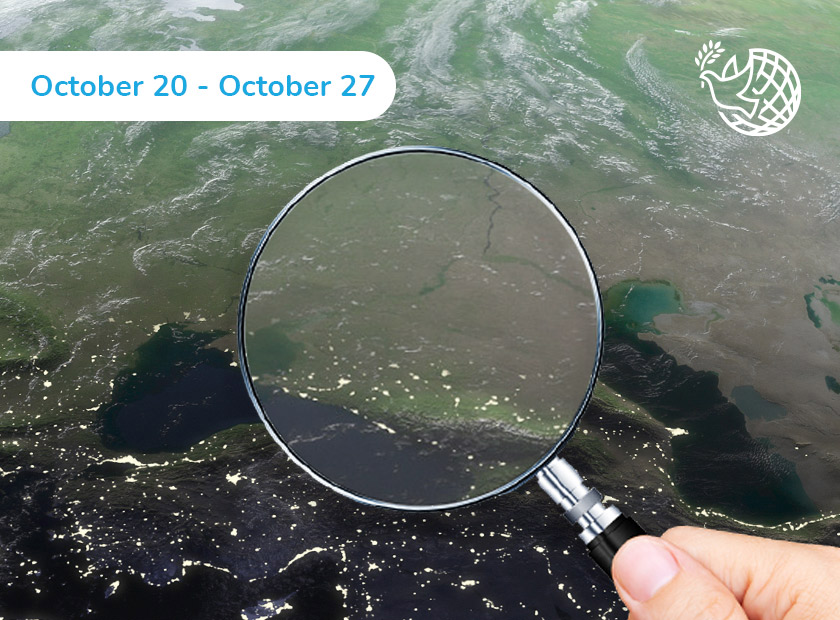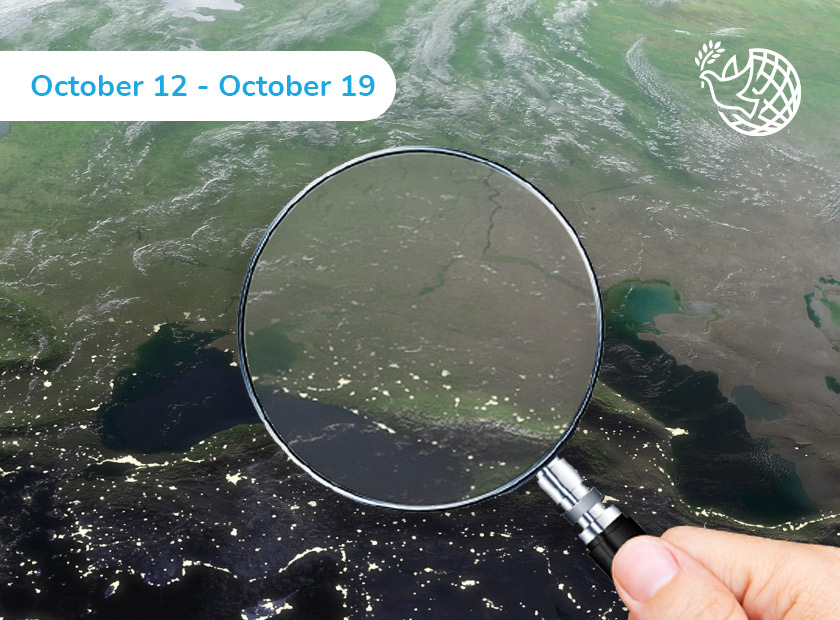What Is Happening in Belarus?
In August of 2020, Belarus’ President, Aleksandr Lukashenko, ran for presidency for the fifth straight time. Twenty-six years ago, Lukashenko was elected as the first President of Belarus and has continued throughout his rule to stand in the way of democracy, human rights, and economic freedom. He has changed the Constitution numerous times, jailed political opponents, and tried to the remnants Soviet Union under his rule. Lukashenko has often been referred to as “the last dictator of Europe” by the West. The Belarusian people stood by and watched this take place and did not have much say in what they see as the future of Belarus. COVID-19 was the last straw for the people of Belarus. Since Lukashenko decided that the virus was not real and that if people continue to drink vodka and go to saunas, they will be okay, people were reminded that they were not protected by their government and were not safe. With no quarantine in place, the Belarusian people are now at their boiling point.
Opposition to Lukashenko was always present, but it was not always vocal, as people usually feared for their lives. As the elections were approaching, the two candidates that were running against Lukashenko, Viktor Babariko and Valery Tsepkalo were both unfoundedly jailed. Sergei Tikhanovsky, an anti-government video blogger, wanted to put forth his candidacy after these incidents but was not allowed by the election committee and was also jailed for his outspoken criticism of the regime in Belarus. His wife, Svetlana decided to assume his role and signed up to run for the president of Belarus working with Babariko’s and Tsepkalo’s campaign managers to create a united opposition majority in the country. The unity party included leadership from Tsepkalo’s wife, Veronika, and Babariko’s campaign manager, Maria Kolesnikova. It is noteworthy that the reason why the Belarusian election committee let Svetlana register was because she was a proclaimed housewife and nobody in the regime thought she would be a threat. As the elections were approaching, the opposition put a self-counting system in place to make sure
that there was an election monitor called Golos that tracked the number of votes for each candidate and how many people voted to have proof if the elections were falsified.
On August 9th, 2020, Aleksandr Lukashenko was declared as the President of Belarus, once again for his sixth term. Anticipating what was to come, the police placed a blockade around the city of Minsk to keep people from protesting in the capital. The internet access was shut down on mobile and home devices to prevent people from using the Golos app and coordinating protests in the city’s center. The government clarified that there was a denial-of-service attack that originated outside of Belarus, but IT specialists claimed that it was regime-based, and Lukashenko had cost the economy $170 million for the three days that the internet was shut down.
In the aftermath, Belarus has been in chaos for the last two months. Protests and marches are occur every day on the streets of major cities, with the biggest in Minsk. The protests have gained international recognition due to OMON, Belarus’ riot police, ill-treating protestors by beating and torturing them and taking them to the detention center, Okrestina, which is known for the brutal torturing of the people who have been jailed for mostly peaceful protests. Women have been raped and beaten. Tikhanovskaya was ordered to give a message after the elections, that people could tell that it was scripted.
The international community of the West, including the European Union and the United States, has stopped recognizing Aleksandr Lukashneko as the legitimate president of Belarus and has placed much of his government under sanctions. Poland and the Baltic States have also started to accept political refugees from Belarus. Russia, on the other hand has congratulated Lukashenko on his win in the elections and Vladimir Putin has continued to meet with Lukashenko throughout the last three months of protests. In these meetings, the situation in Minsk has not been discussed. Putin did approve of the changes in the constitution that Lukashenko once again touched in September. Lukashenko keeps claiming that the protests are orchestrated by the West, which include the U.S. and EU. He has also told Mike Pompeo that Russia is, and will continue to be, his closest ally.


